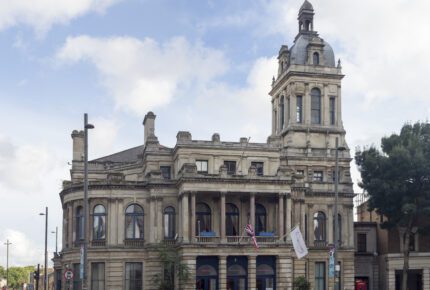

Whilst bail is almost certainly preferable to being remanded in police custody, being released on bail is an anxiety-provoking time. You may feel that you are in limbo, unsure of whether you will be prosecuted. Perhaps you are wondering about the repercussions upon your job, home, and family if you are tried and convicted. The good news is that unless you are charged, information concerning the case will not be recorded on the Police National Computer, though it may be retained in local police records. This means that if the case is dropped prior to charge, it will not show up on a standard Disclosure and Barring Service (DBS) check, which is the criminal records check that most prospective employees undergo. Therefore there is no need to panic just yet. However, it is worthwhile obtaining legal representation as soon as possible, to give yourself the best possible chance of obtaining a favourable outcome.
This article explores pre-charge bail. It looks at how long you can be released on bail prior to charge. It provides information on how police verify your bail address and the reasons why your bail might be extended. Finally, it considers the next steps that will occur after you are released on bail.
What is pre-charge bail?
After you have been arrested, you will usually be taken to the police station for questioning. Once your interview has taken place, the police have the option to:
- charge you and either remand you in custody or bail you to appear at the Magistrates’ Court
- release you with no further action
- release you on bail, or
- release you ‘under investigation’
If you are released on bail or ‘under investigation’ it means that the police are not yet ready to make a charging decision on your case, but that the police investigation remains active and you are still a suspect.
Pre-charge bail can occur for a variety of reasons. It could be that there is insufficient evidence to charge you (Sections 37(2), 34(2) and 34(5) of the Police and Criminal Evidence Act 1984 (PACE). Alternatively, perhaps it is no longer necessary to detain you in order to preserve evidence but the police are still awaiting further information before they make a charging decision. It could also be that because of the nature of the offence, the police have to refer the case to the CPS to make a charging decision.
How long can you be on bail for without being charged?
The Police, Crime, Sentencing and Courts Act 2022 was published to change the laws around pre-charge bail. Earlier, the rule was that the police can only release you on pre-charge bail for a maximum of 28 days. Since 2022, this limit has been increased to 3 months. After the initial 3 month period, the police have the right to extend your pre-charge bail to 9 months, in three-month increments. After 9 months, the police must get permission from the Magistrates Court to extend your bail to a maximum of 12 months from the initial date of release.
This change to the law was made in order to address the common practice among police forces of releasing suspects on bail for months at a time, whilst failing to progress police investigations. However, in response to this restriction on bail, police forces have begun to release suspects ‘under investigation’ instead. There is no time limit on being released ‘under investigation’.
The Law Society has raised concerns that this loophole leaves suspects in limbo, and also potentially places the greater public at risk where suspects who should be released with bail conditions are instead released ‘under investigation’, with no bail conditions in place, in order to avoid the 28 day time limit.
The Justice Inspectorates, a watchdog that looks at policing, has highlighted that there has been insufficient consideration of the fact that releasing suspects ‘under investigation’ does not provide victims with adequate protection. For example, a suspect can be released on conditional bail, with a restriction on contacting the victim. Whereas if they are released ‘under investigation’, no such restriction can be imposed.
Another criticism of releasing suspects ‘under investigation’ is that they are rarely told about progress in the investigation, sometimes for many months. The cases of suspects released ‘under investigation’ are often given lesser priority in comparison to bailed suspects, because bail dates give the police regular prompts to review progress on the case.
Do police check your bail address?
If you are released on bail, you will be asked by police to give your home address (or the address where you will be staying pending the charging decision). You will be asked to prove your identity and give proof that the address that you give is your true address, for example by presenting a utility bill. If you give a friend or family member’s address, the police will contact them to check if they are happy for you to be bailed to that address. If the police have doubts regarding where you live, they may refuse you bail.
Breaking pre-charge bail conditions set by the police is not a criminal offence but it may make it less likely for you to be granted court bail later on. If you breach bail conditions set by the court, you could be arrested and brought before the court. If it is a serious breach, this could lead to you being remanded in custody pending your trial.
Why would bail be extended?
There are number of reasons why bail could be extended; it is not necessarily a bad sign. It could be that the police are still trying to track down a key piece of evidence such as CCTV footage or an important witness, whose testimony could provide sufficient evidence for the full code test to be met, which would enable a charge to be laid. In order to satisfy the full code test, the police/CPS must find that there is a more than 50% chance that if your case went to trial, you would be convicted. Another reason why bail might be extended is if the offence is an either way or indictable only offence, and the police are waiting for a charging decision from the CPS.
However, under the current legal regime in England and Wales, police cannot keep you on bail for more than 3 months before charging you. Once this time has passed, if the investigation is ongoing, the police can release you ‘under investigation’. This means that the investigation is still active but the police can no longer impose bail conditions upon you.
If you are released on bail, what happens next?
If you are released on pre-charge bail, the police have 3 months to make a charging decision on your case. This means that within the 3 months the police must either:
- charge you with an offence
- notify you that they have decided to take no further action
- release you under investigation (this is similar to being released on bail, except without bail conditions)
If you are charged, you will first appear at the Magistrates’ Court. If you have not done so already, it is advisable to instruct a criminal defence solicitor prior to this hearing. If the matter is a summary only offence, you will be asked to plead guilty or not guilty.
If it is an either way offence, the plea before venue procedure will be followed. This means that you will be asked to indicate your plea. The magistrate will then consider if the Magistrates’ Court is an appropriate forum for the case to be heard. Finally, if the magistrate finds that they have jurisdiction to hear the case, the Defendant will be asked to elect whether the case stays in the Magistrates’ Court or is to be sent to the Crown Court.
For an indictable only offence, you will be asked to indicate your plea in the Magistrates’ Court. If the Defendant indicates a guilty plea at the Magistrates’ Court, the case will be listed in the Crown Court for a sentencing hearing. If the Defendant indicates a not-guilty plea, the case will then be indicted to the Crown Court for trial. Prior to the trial there will be a plea hearing and trial preparation hearing. Depending on the complexity of the case, there is likely to be other several hearings that take place prior to the trial. These could cover issues such as points of evidence or law that need to be determined before the trial takes place.
Where to get further help
Even if you were represented by the duty solicitor during your police interview, you have the right to instruct the criminal defence solicitors firm of your choice. At Stuart Miller Solicitors our skilled and experienced team are ready to represent you today. We will go the extra mile to help prepare your case. Regardless of whether you intend to plead guilty or not guilty, we will help you obtain the best possible outcome. In many cases, we have even succeeded in helping clients get their case dropped before trial. Contact us for a free consultation today.
(This page was last updated on November 15, 2023)
OUR COMMITMENTS TO YOU:
-
Responsive
A legal expert will consult you within 24 hours of making an enquiry.
-
Empathetic
We will always treat you with trust, understanding and respect.
-
Specialised
Your case will be handled by an expert who specialises in your type of offence.
-
Proactive
We will take early action to end proceedings as soon as it is practically and legally possible to do so.
-
Engaged
You will be kept updated on your case at all times. We will provide a named contact available to answer your questions.
-
Caring
We understand this is a difficult and stressful time for you and your family. Our team will support you every step of the way.
-
Tenacious
We will never give up on your case. We fight tirelessly to get you the best possible outcome.
